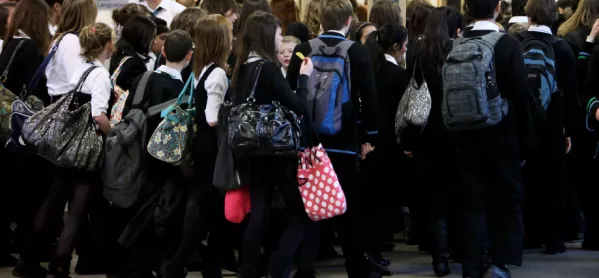Disadvantaged students’ GCSE achievement is worse in isolated schools than those in urban areas, according to research released today.
The proportion of disadvantaged children getting five good GCSEs including English and maths falls by 1 percentage point for every kilometre a school is from its nearest neighbour, the study by the Future Leaders Trust reveals.
The study, Isolated Schools: out on a limb, finds that average attainment in isolated schools is lower for all pupils - but the impact on disadvantaged children is greater.
On average, in schools that were less than 1km from their nearest neighbouring school, 49 per cent of disadvantaged children gained five good GCSEs including English and maths.
But in schools that were 5km or more from their nearest neighbour, only 37 per cent did.
In schools that were less than 1km from another school, 68 per cent of students who were not on free school meals gained five good GCSEs including English and maths. This compared with 64 per cent in schools that were more than 5km away from their nearest neighbour.
The study also finds that the majority of schools where students on free school meals get better than average results for GCSE are less than 1km from another school.
Bucking the trend
Heath Monk, chief executive of the Future Leaders Trust, which aims to develop exceptional headteachers, said: “The trend of disadvantaged students underachieving in relatively geographically isolated schools should be recognised and appropriate support provided. This is why we’re running the Talented Leaders programme - we need more great heads to lead struggling schools and give every child a great education.
“The research doesn’t explain why this decline happens; there are complex issues at play. But one way we believe we can make a difference is to create professional networks that allow schools and headteachers to work together.”
Kevin Rowlands, a Future Leaders principal whose school, Oasis Academy Immingham, is 5.5 km from its next nearest neighbour, said: “Immingham’s isolation has an impact on our students’ aspirations and self-belief. With no direct rail link out of the town, we are very remote. We are over an hour from any major city; with the exception of Lincoln it is close to two hours before you can access cultural and educational places of interest such as those found in York, Leeds or Manchester.”
Previous research from the trust found that being far from cultural and employment opportunities created challenges for headteachers of coastal schools who were attempting to raise student aspirations.
A spokesperson said the Department of Education planned to address the issued raised by the research with the creation of the National Teaching Service, which would “send some of our best teachers to underperforming schools in struggling areas”. The project would start with a pilot in the North West, he added, and aimed to place 1,500 outstanding teachers and middle leaders in schools across the country by 2020.
Want to keep up with the latest education news and opinion? Follow TES on Twitter and like TES on Facebook




